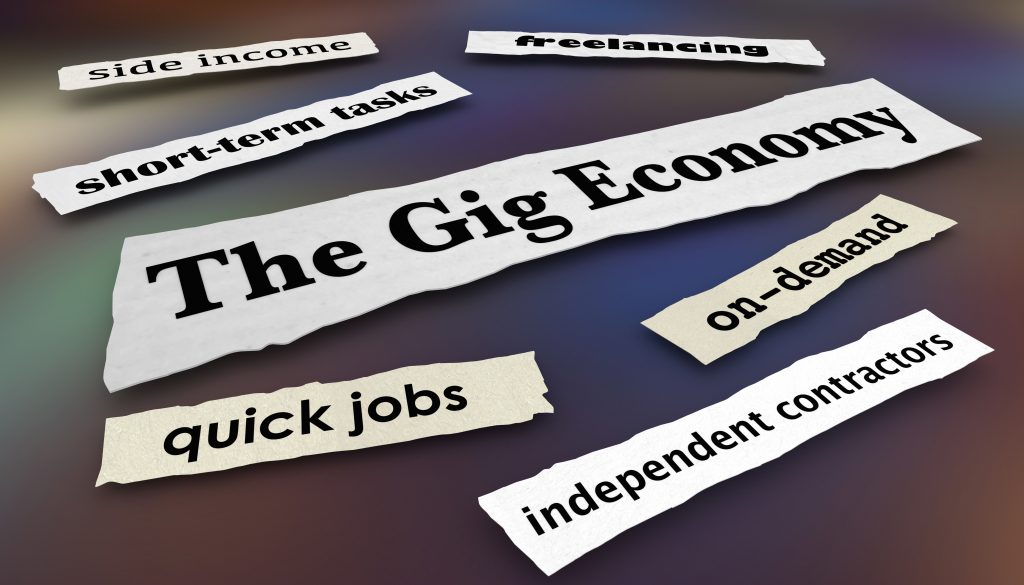Colorado Must Lead on the Gig Economy

Unless you follow federal administrative procedure, you may not have noticed two recent moves by the Trump administration that could have drastic consequences for the future of worker benefits and protections in this country. It all boils down to an issue of classification: Are gig economy workers who earn a living through web-based services and apps employees or independent contractors of that company?
As the Bell Policy Center has written in the past, this classification decision holds significant consequences for workers. If classified as employees, workers are entitled to benefits such as unemployment insurance, minimum wage protection, paid leave (if offered by an employer), overtime pay, and tax relief (independent contractors pay more in taxes than employees). When classified as independent contractors, gig economy workers have no right to these benefits, nor are they able to collectively bargain for better wages and conditions.
Two recent decisions by the Trump administration have reversed the trend of the previous administration and have shown who it’s siding with — and it’s not the workers.
On May 1, the Trump administration’s Department of Labor published a response to an unnamed company operating a web platform that had asked how it should classify their workers. The Department of Labor letter made it clear that given the circumstances described by the gig company, its workers should not be classified as employees. While the letter doesn’t have the force of law or regulation behind it, it does indicate where the administration and its policies are moving, as well as provide ammunition for businesses trying to avoid providing benefits and protections.
On May 14, the National Labor Relations Board (NLRB), which is currently ruled by Trump appointees, determined Uber workers are not employees, and therefore not eligible for unionization. Again, there is no force of law behind NLRB’s guidance, but these workers cannot file complaints about their treatment as employees and, therefore, lose any semblance of employee protections.
Why Should We Care About Gig Economy Workers?
The entire foundation of worker protections and benefits developed over the last century depends upon a traditional employer-employee relationship. If businesses are going to exploit a classification loophole in order to bypass 100 years’ worth of protections while the federal government gives them the license to do so, then Colorado needs to step forward, lead, and help workers manage these new arrangements.
That means more access to portable benefits — ones that aren’t contingent on where a person works or their classification. The Colorado legislature made some progress on these issues, putting into motion studies and plans to adopt retirement savings accounts and paid family and medical leave. These are good starts. A strong portable benefits system combined with other policies — such as ensuring Colorado classifies these workers as employees and provides them with labor protections at the state-level —to form the backbone of a strong ecosystem for gig economy workers in Colorado.
The bottom line is while these issues are flying under the radar, they need more attention. In just a short amount of time, many people will be affected by these seemingly arcane decisions. An NPR/Marist poll from January 2018 shows 1 in 5 jobs in the U.S. are filled by positions that could be classified as independent contractors, and by 2029, contractors and freelancers could comprise more than 50 percent of the country’s workforce.
Colorado doesn’t just have an opportunity to lead; our state has an obligation to help the many workers who are currently, and who will be, in these work arrangements. With federal policymakers actively undermining workers, Colorado needs to step up.
